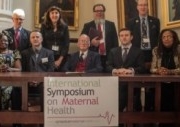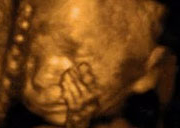Troubled times: Is God giving Britain over?
 The rollercoaster journey of the last twelve months has left many UK citizens feeling dislocated and anxious about the future of our country.
The rollercoaster journey of the last twelve months has left many UK citizens feeling dislocated and anxious about the future of our country.
Political events – Brexit, Trump, a snap general election, a hung parliament, confidence and supply arrangements and the Queen’s speech – have laid bare deep divisions between old and young, right and left, urban and rural. These tensions have been exacerbated by terrorist incidents in London and Manchester, plus the Grenfell Tower fire, in turn politicised and re-channelled into blame and recrimination.
There is no clear consensus emerging about how to resolve debates about ‘austerity’, security, cuts in public services, the burgeoning national and personal debt and the mode of our exit from the European Union. Our leaders also seem to lack the confidence and skills necessary to show us the way forward. Furthermore, this cultural and political deadlock has divided friends and families and toxified social media. Britain is imploding.
Alongside all this is a rising hostility to Christian faith and values. The British General Election may have turned the world of Westminster upside down, but in its aftermath evangelicalism has emerged as a key theme: the resignation of Liberal Democrat leader Tim Farron over his views on homosexuality1 and the extraordinary level of public criticism of the Democratic Unionists (DUP) for their Christian beliefs and opposition to same-sex marriage and abortion. With this resentment toward the DUP and its partnership with the Tory government has come a political resolve to extend the Abortion Act and same-sex marriage to Northern Ireland. This intensifying backlash against conservative moral values on life and sexuality betrays a conviction amongst many mainstream politicians that Bible-believing Christians ought not to hold public office.
With social policy following such a liberalised trajectory in the media and corridors of power, one wonders if there would any longer be a place for evangelical luminaries like William Wilberforce or the Earl of Shaftesbury in contemporary British politics.
It is not all one way – the recent decision of the General Pharmaceutical Council to allow scope for freedom of conscience in its latest guidelines was a welcome surprise as was the Belfast Court of Appeal decision to declare Northern Ireland’s restrictive abortion law compatible with the Human Rights Act. But the recent decision of the British Medical Association to back the complete decriminalisation of abortion and the government’s reflex decision to fund abortions for Northern Irish women traveling elsewhere in the UK, were truly astonishing.
There are serious challenges ahead. The Queen’s Speech foreshadowed plans to combat ‘non-violent extremism’ and establish a Commission for Countering Extremism, which will ‘support the government in stamping out extremist ideology in all its forms’. Already voices such as the Evangelical Alliance have pointed out that ‘extremism’ is a slippery concept and there is no consensus about what it means. Might Christians holding biblical views on life issues and sexuality lie in its cross hairs? ‘Hate speech’ accusations and reports of ‘thought-policing’ in the public service do not bode well. The government already ‘has tried and failed in recent years to define extremism in a way that tackles terrorism and its causes without restricting freedom of ideas’.
We are living in a post-Christian society where an atheistic mindset and the ethics of secular humanism have growing influence. The myth of secular neutrality holds that this is some kind of neutral default position, unlike the ‘faiths’ of Christianity and Islam. And yet secular humanists have their own strong philosophical and ethical convictions that are based as much on ideology as evidence, and which exponents are forcing on others using political and legal mechanisms. ‘Tolerance’ once meant ‘respectful disagreement’. Now it seems to mean ‘affirm my beliefs and celebrate my behaviour or else’.
The apostle Paul, speaking of a society that had similarly turned its back on God highlighted the link between unbelief and moral decay in talking of men who ‘suppress the truth by their wickedness’, neither glorifying God nor thanking him and futile and foolish in their thinking. That generation was guilty of three ungodly ‘exchanges’. They exchanged ‘the glory of the immortal God for images’, ‘the truth of God for a lie’ and ‘natural relations for unnatural ones’. Homosexual acts were a key marker of such cultural decline – along with greed, depravity, envy, murder, strife, deceit, malice, slander, arrogance and hatred of God.
As a result, God ‘gave them over to a depraved mind, to do what ought not to be done’. Is God similarly giving Britain over? If so, we can expect these challenges to increase in coming years – and as Christian doctors and nurses the need to preach Christ and walk in his footsteps will be as great as ever.
‘God is our refuge and strength, an ever-present help in trouble. Therefore, we will not fear…’












Leave a Reply
Want to join the discussion?Feel free to contribute!